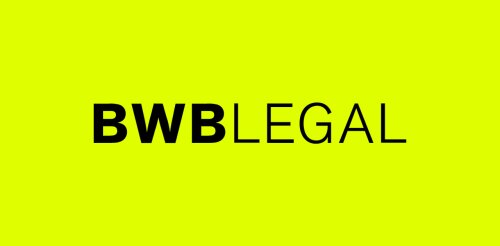Best Employment & Labor Lawyers in Liechtenstein
Share your needs with us, get contacted by law firms.
Free. Takes 2 min.
Or refine your search by selecting a city:
List of the best lawyers in Liechtenstein
About Employment & Labor Law in Liechtenstein
Employment and labor law in Liechtenstein governs the rights and obligations of employers and employees in the workplace. It covers aspects such as employment contracts, working hours, wages, dismissal, and workplace safety regulations.
Why You May Need a Lawyer
There are various situations where you may need legal assistance in employment and labor matters. Some common scenarios include wrongful termination, discrimination, disputes over wages or benefits, and conflicts with collective agreements.
Local Laws Overview
Key aspects of employment and labor law in Liechtenstein include the principle of freedom of contract, which allows employers and employees to negotiate terms and conditions of employment. Collective agreements between employers' associations and trade unions also play a significant role in regulating working conditions.
Frequently Asked Questions
1. What is the minimum wage in Liechtenstein?
There is no statutory minimum wage in Liechtenstein. Wages are generally determined through negotiation between employers and employees.
2. How many hours can I work per week in Liechtenstein?
The standard working week in Liechtenstein is 45 hours, although certain industries or professions may have different regulations.
3. Can my employer terminate my contract without cause?
No, under Liechtenstein law, employers must have a valid reason for terminating an employee's contract. Wrongful termination can lead to legal repercussions.
4. What are my rights as an employee regarding workplace safety?
Employers in Liechtenstein are required to provide a safe working environment for their employees. Workers have the right to refuse unsafe work conditions.
5. Are there any restrictions on working hours for minors in Liechtenstein?
Minors under the age of 17 are subject to restrictions on working hours in Liechtenstein to protect their well-being and education.
6. Can I file a complaint against my employer for harassment or discrimination?
Yes, employees have the right to file complaints against their employers for harassment or discrimination based on gender, race, religion, or other protected characteristics.
7. How can I negotiate better terms in my employment contract?
Consider seeking legal advice or assistance from a labor lawyer to help you negotiate better terms in your employment contract.
8. What are the rules regarding parental leave in Liechtenstein?
Parents in Liechtenstein are entitled to parental leave to care for their children, with specific regulations on duration and compensation.
9. Can I request flexible working hours from my employer?
Employees can request flexible working hours from their employers, although the final decision is at the discretion of the employer based on operational needs.
10. How can I address a dispute with my employer over wages or benefits?
If you have a dispute with your employer over wages or benefits, you can seek legal advice to understand your rights and options for resolving the issue.
Additional Resources
For more information on employment and labor law in Liechtenstein, you can contact the Liechtenstein Labor Inspectorate or the Liechtenstein Chamber of Commerce for guidance and resources.
Next Steps
If you require legal assistance in employment and labor matters in Liechtenstein, consider consulting a labor lawyer who can provide you with expert advice and representation to protect your rights in the workplace.
Lawzana helps you find the best lawyers and law firms in Liechtenstein through a curated and pre-screened list of qualified legal professionals. Our platform offers rankings and detailed profiles of attorneys and law firms, allowing you to compare based on practice areas, including Employment & Labor, experience, and client feedback.
Each profile includes a description of the firm's areas of practice, client reviews, team members and partners, year of establishment, spoken languages, office locations, contact information, social media presence, and any published articles or resources. Most firms on our platform speak English and are experienced in both local and international legal matters.
Get a quote from top-rated law firms in Liechtenstein — quickly, securely, and without unnecessary hassle.
Disclaimer:
The information provided on this page is for general informational purposes only and does not constitute legal advice. While we strive to ensure the accuracy and relevance of the content, legal information may change over time, and interpretations of the law can vary. You should always consult with a qualified legal professional for advice specific to your situation.
We disclaim all liability for actions taken or not taken based on the content of this page. If you believe any information is incorrect or outdated, please contact us, and we will review and update it where appropriate.
Browse employment & labor law firms by service in Liechtenstein
Liechtenstein Attorneys in related practice areas.
Browse employment & labor law firms by city in Liechtenstein
Refine your search by selecting a city.















